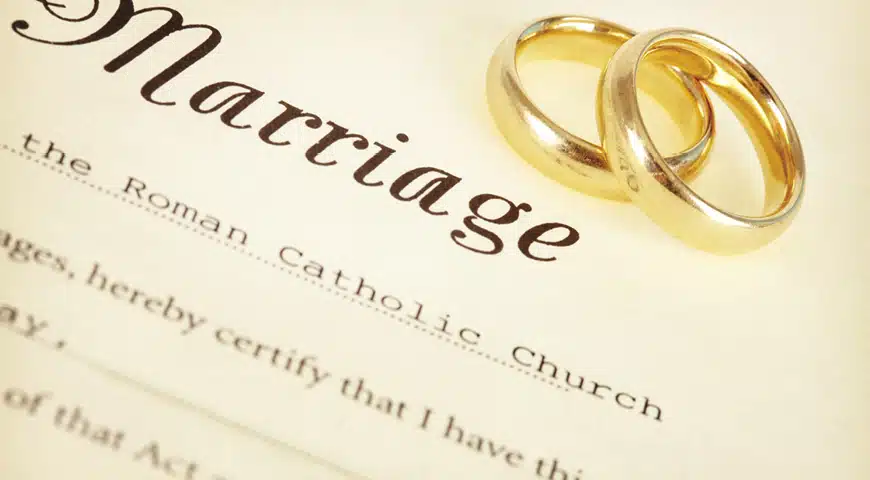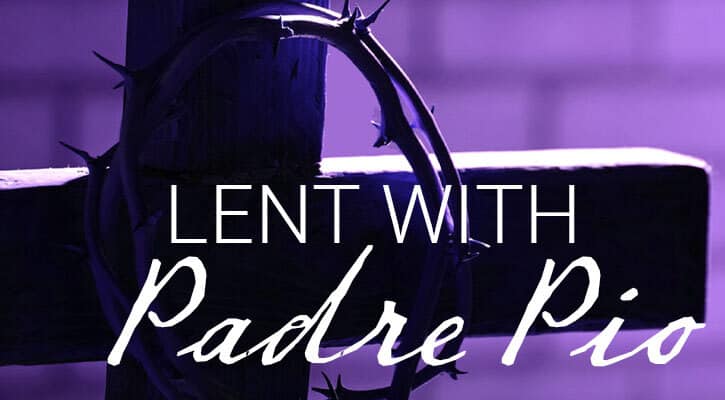Can He Marry in the Catholic Church?
My nephew, a Catholic, has had two civil marriages and divorces. He would now like to marry a Catholic widow. Can he?
His two civil marriages were valid until the divorces went into effect. The Catholic Church, however, does not see either of those marriages as a valid sacramental one because of “lack of canonical form” (obligation for a Catholic to be married by a priest or deacon—or obtain prior Church consent for a properly licensed person to officiate at that wedding).
To marry in the Catholic Church now, he will need a copy of his baptismal certificate and an official copy of each marriage certificate (not the marriage license for each). His wife-to-be will need a copy of her baptismal record, an official copy of her marriage certificate, and a copy of her husband’s death certificate. Any trained parish staff member should be able to make these arrangements. I thank my confrere, Art Espelage, OFM, JCD, for assistance on this response and the next one.
Can This Marriage be Convalidated?
An 87-year-old Catholic acquaintance of mine was married in the Catholic Church and was later divorced. His first wife later died. He has already remarried outside the Catholic Church. Can his
present marriage be recognized by the Church?
Yes. He will need an official copy of the documents listed in the response above. If his present wife is a Christian, she’ll need a copy of her baptismal certificate if she was baptized as a Catholic.
If not, their convalidation will need either a dispensation for “disparity of cult” (marriage of a Catholic and an unbaptized person) or for “mixed religion” (marriage of a Catholic and another Christian). This assumes something not stated above: that the Church would agree that this man’s present wife was not previously in a valid sacramental marriage or was a widow before she married your acquaintance.
Convalidation means that an existing civil marriage can be recognized as a valid sacramental marriage. Again, a trained Catholic pastoral minister should be able to make these arrangements. The ceremony can be as public or as private as the couple prefers.
Thanks for asking on behalf of your friend!
Rules of God or of Humans?
My friends say that the precepts of the Church were instituted by humans and, therefore, are not binding. Is that so?
The six precepts of the Catholic Church in the United States are to: 1) participate in Mass on Sundays and holy days of obligation, 2) receive holy Communion regularly and go to confession annually if one is conscious of having committed a mortal sin, 3) receive the Sacrament of Confirmation, 4) observe the Church’s marriage laws and raise one’s children as Catholics, 5) observe the Church’s days of fast and abstinence, and 6) join in the missionary spirit and apostolate of the Church.
These were established in 1884 by the US bishops at the Third Plenary Council of Baltimore and reflect later official changes.
Your friend’s position suggests that only laws clearly established by God need to be obeyed. Does your friend agree that traffic laws and tax laws are binding? Similarly, the Catholic Church can make laws for its members.
Can Drums be Liturgical Instruments?
I’m a drummer who has been told by many clerics and laypeople that drums cannot be used during liturgies because they are “savage” and “demonic.” Those reasons sound racist and/or demonic. Can I use my drumming abilities as part of a Catholic liturgy?
The Catholic Church allows drums at its liturgies. Some Masses celebrated at Vatican II (1962–65) used drums, and many places now employ them. I’m sorry for the misinformation that you have received about this. Unfortunately, some people easily assume that their personal preferences or dislikes automatically reflect what the Catholic Church allows or does not allow.
Is it a Sin to Get a Tattoo?
I have not been able to find anything about this regarding Catholics. If the tattoo had religious significance (for example, Jesus, Mary, or one of the saints), would that matter?
It is not a sin. Leviticus 19:28 says: “Do not lacerate your bodies for the dead, and do not tattoo yourselves. I am the Lord.” That is not the case here.
Prudence is certainly a factor here. Does the tattoo shop observe proper health regulations? The skin under a tattoo can get infected. How will the one wearing the tattoo feel about that design perhaps 50 years from now?
Miracles: Who Accepts Them?
Unless a person is officially recognized as a martyr, a person who has the title of “venerable” needs one miracle to be called “blessed” and a second one to be declared a “saint.” Who judges these things and by what criteria?
The Catholic Church uses three commissions to verify miracles: 1) a team of medical experts, 2) a team of theologians, and 3) a team of cardinals and bishops working for the Congregation for the Causes of Saints. The criterion in medical healings is whether they have a natural explanation.
Prayer Needed for a Rosary’s Validity?
Is the phrase “for an increase in faith, hope, and charity” required for a rosary’s validity? A friend insists that it is, citing Our Lady of Fatima. I maintain that it is optional.
This is a pious custom, but you are totally correct. The rosary was prayed for centuries before this custom arose in the 20th century. Again, people sometimes assume that their personal preference is a universal law of the Church. This is not necessarily the case.








